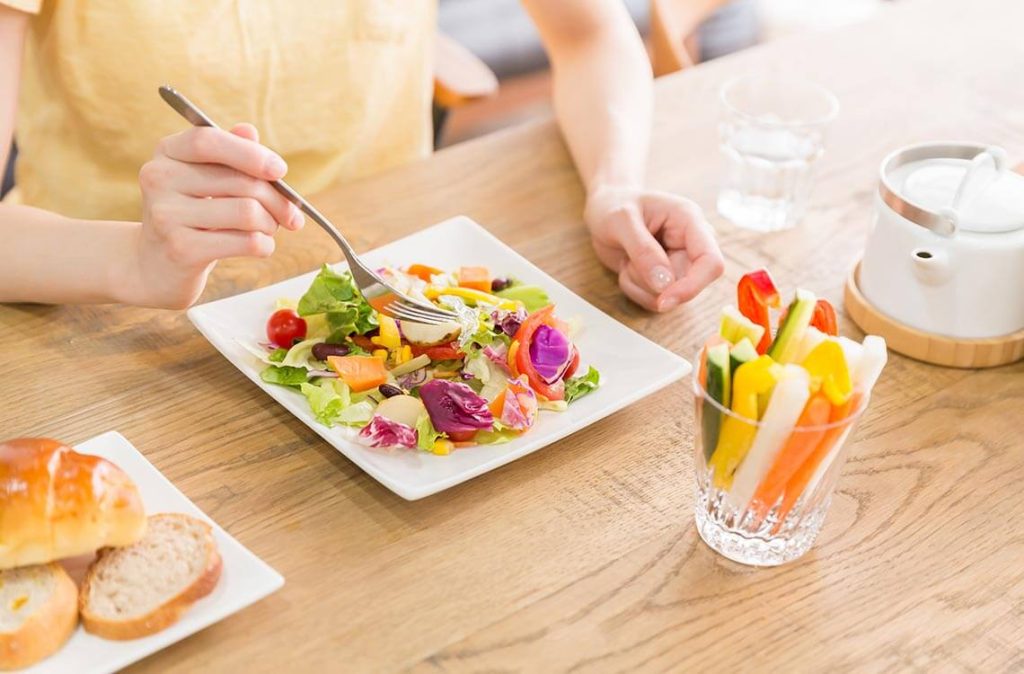Giving birth is a remarkable experience for any mother. While it brings immense joy, it also comes with its fair share of physical and emotional challenges.
A mother’s body goes through significant changes during pregnancy, and it takes time for the body to heal after childbirth.
In addition, the mother’s mental health is also a crucial aspect of postpartum recovery.
A mother’s diet plays a vital role in her overall health and healing after delivery. Eating a balanced diet can help speed up recovery, boost energy levels and improve mood.
Proper nutrition is not only essential for the body to heal after childbirth and regain strength. But it also ensures you have enough nutrients for breastfeeding.
Therefore, it is crucial for mothers to pay attention to what they eat during the postpartum period.
Here are 5 important nutrients that every new mother should add to her diet after childbirth.
Important Nutrients for a Postpartum Diet
Iron
One of the key nutrients that are vital for postpartum recovery is iron.
During pregnancy and childbirth, a mother loses a significant amount of blood, which can lead to iron deficiency anaemia.
Iron-rich foods such as red meat, poultry, fish, and leafy greens should be included in the mother’s diet to replenish iron levels in the body.
Iron is essential for maintaining energy levels, and a deficiency can lead to fatigue and weakness, making it difficult for the mother to care for herself and her baby.
Calcium
Another crucial nutrient that is essential for postpartum recovery is calcium. The mother’s body requires calcium to rebuild bone strength after childbirth.
Calcium is also crucial for the development of the baby’s bones and teeth during pregnancy.
So it’s no myth that if you don’t get enough calcium, your baby will take it from your bones. So its important to replenish all that lost calcium after childbirth.
Good sources of calcium include milk, cheese, yogurt, tofu, and dark green leafy vegetables such as spinach and kale.
Protein
In addition to iron and calcium, protein is also a vital nutrient for postpartum recovery.
Protein-rich foods such as lean meats, fish, eggs, beans, and lentils are essential for repairing and rebuilding tissues that may have been damaged during childbirth.
You also need to consume ample protein if you want to make enough breast milk for your baby.
So it doesn’t matter how many galactagogues you try, because without protein and other nutrients you won’t be able to produce adequate breast milk.
Vitamins and Minerals
Apart from these essential nutrients, a mother’s diet should also include plenty of fruits and vegetables.
Fruits and vegetables are rich in vitamins and minerals that are essential for postpartum recovery.
They are also rich in antioxidants, which can help reduce inflammation and improve the immune system.
However, some veggies and fruits are more nutritionally dense than others.
Spinach, sweet potatoes, carrots and broccoli are some examples. Along with apples, oranges, mangoes and lemons.
Healthy Fats
Incorporating healthy fats into the diet is also essential for postpartum recovery.
Fatty fish such as salmon and tuna, eggs and egg yolk, nuts and seeds, and avocado are good sources of healthy fats.
Omega-3 fatty acids, in particular, are crucial for brain health and can help alleviate postpartum depression.
So if you don’t like fatty fish, just pop some fish oil capsules and you should be good to go.
The Healing Power of a Healthy Diet
A mother’s diet plays a crucial role in her mental health and healing after delivery.
Eating a balanced diet that includes essential nutrients such as iron, calcium, protein, fruits, and vegetables, and healthy fats can speed up recovery, improve mood, and boost energy levels.
It is essential for mothers to pay attention to their diet during the postpartum period to ensure that they are adequately nourished and can care for themselves and their babies.
With the right nutrition, a mother can recover and thrive during this critical time.
Disclaimer: The information provided in this article is for informational purposes only and should not be considered as medical advice from Motherhood. For any health-related concerns, it is advisable to consult with a qualified healthcare professional or medical practitioner.
For more insightful stories and fun recipes, stay tuned to Motherhood Story!
